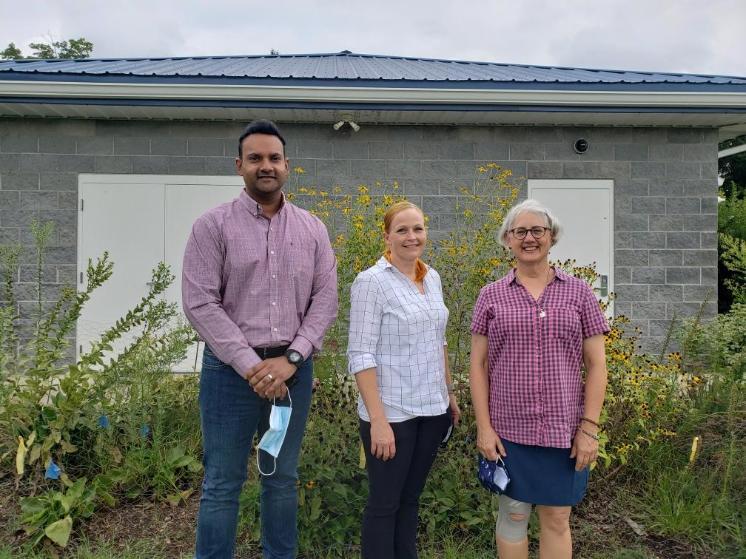The department of Biological and Environmental Sciences are excited to welcome three new faculty.
Dr. Ravi Sankar (left) completed his Ph.D and M.Sc. in Geological Sciences at Florida State University (Tallahassee, Fl) as a Fulbright scholar, and his undergraduate degree in Physics and Environmental Sciences (Summa cum laude) at the University of the West Indies, St. Augustine, Trinidad. Dr. Sankar was recently an "Eyes-High" postdoctoral fellow at the University of Calgary (Canada) where he also served as the project manager for the Canadian Consortium for Arctic Data Interoperability. Dr. Sankar is a member of the Executive Organizing Committee for the biannual Arctic Observing Summit, with the upcoming Summit to be held in Tromso, Norway (March 30-April 01, 2022). He has also taught courses in Geology, Geography, Physics and General Education at an amalgamation of Universities in the USA, Canada and the Caribbean.
Dr. Sankar’s research focuses on remote sensing of the coastal environment and quantifying the effects of increased storminess on the morphology of coastal areas in response to natural and anthropogenic influences. His work has been instrumental in predicting rates of change along Arctic, mid-latitudinal and tropical coastal settings, which serve as a catalyst to planning future coastal zone management strategies that address the near-term effects of climate variability.
Dr. Katie Pennington (middle) is interested in understanding how cells respond to their environments by modulating signaling and gene expression patterns to maintain homeostasis, health, and viability. Inappropriate responses lead to disease processes, such as neurodegeneration and cancer, which contribute to significant quality of life impairment and mortality. As a PhD student at Brandies University, Dr. Pennington working with Dr. Michael Marr to research the role of the transcriptional coactivator TFIID in response to environmental stresses. She then went on to work with Drs. Yingbin Fu and Margaret DeAngelis at the University of Utah to develop a CRISPRi-based approach to target genes involved in the pathogenesis of age-related macular degeneration (AMD) and to investigate the epigenetic mechanisms involved in AMD development. As a postdoctoral fellow at Brigham Young University, she worked with Dr. Joshua Andersen to further understand the oncogenic properties of the 14-3-3 proteins and the mechanisms they utilize to promote growth, survival, tumor development, and metastasis, particularly in the context of stresses such as hypoxia and low nutrient availability.
Dr. Ann Mayo (right) is interested in questions in population and community ecology, animal behavior, evolution, and organismal diversity. Her research has focused on the burrow and door construction behaviors of burrowing spiders, the spatial ecology and foraging behavior of harvester ants, and assessing ant communities and their changes in response to environmental change and use in land management. She continues her work on harvester ants, including obtaining nest casts, and ant communities.
Dr. Mayo is active with the Ecological Society of America, Entomological Society of America, and the International Society of Hymenopterists in which she presents research and serves on committees.


